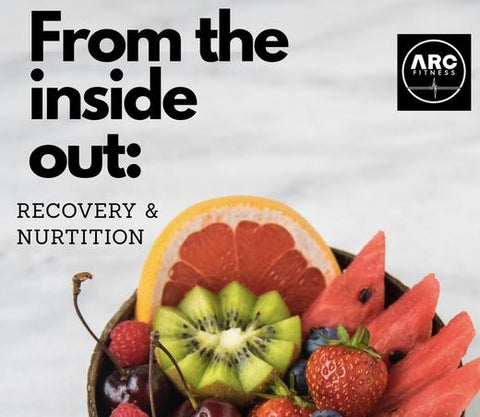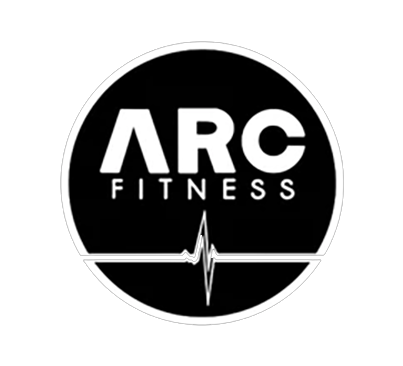No products in the basket.
Arc Fitness, Nutrition
From the Inside out: Recovery & Nutrition

From the Inside out: Recovery & Nutrition.
Another Covid-19-inspired post.
So, I am self-isolating at home, sitting on my ass feeling sorry for myself and eating yet another TV-sized bar of chocolate. I have been ordering takeaways, feeling lethargic and unmotivated.
The last time I ate like this was before my recovery and fitness journey, and these similar feelings of being sluggish and tired were coming back. It got me thinking about how important good nutrition is to everyone but is it more important to those battling and entering recovery?
So, why is good nutrition and diet important to those in recovery?
Like most things during addiction, proper diet and nutrition often fall by the wayside. Instead of spending time, money or energy on maintaining a healthy lifestyle, individuals use these resources to perpetuate their destructive drug or alcohol habit. I would sooner spend my last £8 on a half-bottle of vodka than on a meal for the day.
As an addicted person continues to neglect their nutrients, it will begin to interfere with the body’s overall well-being and ability to function.
When you abuse alcohol and drugs, you tend to:
Eat less food.
Choose unhealthy foods and/or may skip meals.
Increase the speed at which your body uses up energy.
Increase the loss of nutrients through vomiting and diarrhoea.
Damage your stomach so that it can’t absorb the nutrients in food properly.
It is important to note that poor nutrition as a result of substance misuse can negatively influence the way our body and brain function. It can:
Low body temperature
Increase Depression / Anxiety
Cause cognitive impairment
Lead to muscle degeneration
Cause heart rate inconsistencies
Lead to the suppressed immune system
Cause vitamin deficiencies & Electrolyte imbalances
Therefore, proper food and adequate nutrition is vital in helping the body rebuild itself and maintain health. In the first 12 months after stopping alcohol or drugs, your nutrition needs are higher than normal. You need to make sure you’re feeding your body good food on a daily basis. Even if you eat a healthy, varied diet while using drugs and alcohol, fewer nutrients are available to satisfy nutritional needs since a lot of those nutrients are being used to detoxify your body.
A balanced diet for someone in recovery should include:
- Complex carbohydrates (50% to 55% of the calories you consume) – plenty of grains, fruits and vegetables.
- Dairy products or other foods rich in calcium (calcium-fortified beverages – two to three cups per day.
- Moderate protein (15% to 20% of calories) – meat or fish or another high-protein food.
- Fat choices (30% of calories) – preferably good oils such as olive, flaxseed and those found in fish
Any all-or-nothing people out there should be aware that food shouldn’t replace alcohol or drugs as a coping mechanism. Both sugar and caffeine can cause cravings and are common substitutes used during recovery. These low-nutrient foods can prevent you from consuming enough healthy food and they affect your mood. Be mindful and be moderate.
As your body begins to heal from the inside out, you should start to feel the difference that a healthy diet can make including:
Improved mood
Increased energy
Better memory
Stronger immune system
Reduced risk of disease
With so many benefits, allowing diet and nutrition to play an active role in recovery isn’t just about reaching goals, but finding the balance of mind, body and spirit in sobriety. The body is an amazing thing it can repair itself even after so many years of abuse.
You will be glad to know that I have since taken action over my food intake again, no more tv sized bars of chocolate for me, more like iPhone sized, and I’m exercising again.
Eat yourself well and in moderation.
Read more: Benefits of Exercise for Addiction Recovery
